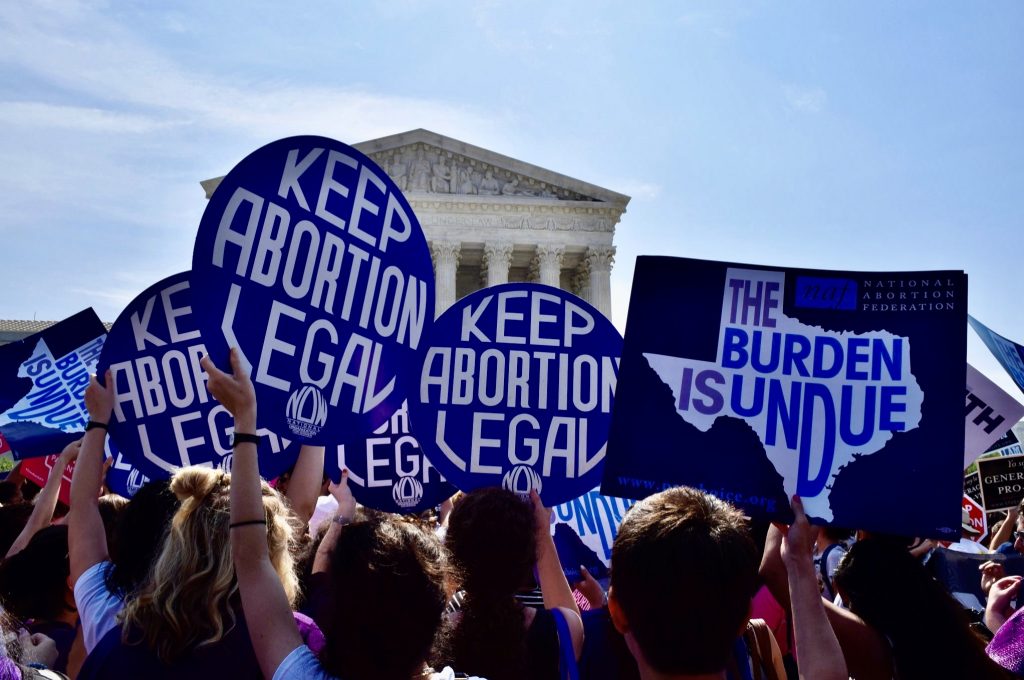Laura Chapin — an abortion advocate and seasoned veteran of the reproductive justice world with a deep understanding of progressive politics and Colorado’s political arena — spoke with the Colorado Times Recorder about the state of reproductive rights in Colorado.
In a 2017 interview with Colorado Politics, Chapin said, “Colorado stands out as one of the few places where women can still get the care they need without some of the horrific laws.”
When asked if she still felt the same way, Chapin agreed.
“I mean if anything, we’ve now gone further,” she said. “We put abortion rights into state law, we’ve passed a shield law, so that people in abortion-ban states like Jonathan Mitchell, who’s the author of [Texas’] SB 8, can’t try and come after people seeking care here.”
Senate Bill 8, also called the Heartbeat Act, was a law passed by the Texas legislature that requires a physician to test for a fetal heartbeat and prohibits an abortion if one is detected. A “fetal heartbeat” is typically detected around 17 to 20 weeks of gestation.
Chapin’s first campaign was working on former President Bill Clinton’s successful re-election bid against former Vice President Al Gore in 1996. She has also worked for former U.S. Senators Barbara Boxer (D-NY), Barbara Mikulski (D-MD), and former Colorado governor Bill Ritter.
Chapin also worked for several advocacy groups, statewide ballot measures, and the Colorado legislature. The pro-abortion advocate began freelance work in 2008, a shift she said started her work on “pure abortion rights” issues.
A proud University of Texas Austin graduate and principal of progressive strategic communications firm LKC Consulting LLC, Chapin also emphasized that abortion has not been a partisan issue for Colorado voters.
“The most important thing for people to understand is that support for abortion rights in Colorado has traditionally not been a red-blue issue for voters,” Chapin said. “It may be for politicians, but individual voters have long said, ‘We hold as a value that these are personal, private medical decisions that belong between women and doctors.’ And I think people need to understand that … the voters are ahead of the politicians on this. Colorado would not have protected abortion rights across party lines for 50 years if it wasn’t a fundamental part of our values.”

A poll conducted by the Pew Research Center asked Colorado adults about their opinions on abortion and found that 56% of Democrats, 27% of Republicans, and 18% of unaffiliated voters said abortion should be legal in all or most cases.
Twenty percent of Democrats, 65% of Republicans, and 15% of unaffiliated voters said that abortion should be illegal in all or most cases.
Chapin pointed out that Colorado was the first state to decriminalize abortion in 1967 in cases of rape, incest, and pregnancies that “would lead to permanent physical disability of the woman” under Colorado Republican governor John Arthur Love — who served from 1963 to 1973 — and a Republican legislature.
However, Chapin said there is still work that needs to be done. She notes that Colorado public employees still do not receive healthcare coverage for their abortions.
“We have access, but we still have disparities, and we definitely have cost disparities, and it is inherently unfair that if you are a teacher or a firefighter or a public employee — somebody who works for the state’s Department of Natural Resources, Child Support Enforcement — your health insurance plan doesn’t cover the full range of reproductive health care,” Chapin said.
Colorado Amendment No. 3, also called Public Funds for Abortion Initiative, prohibits the use of public funds by the state agencies or political subsidiaries to pay or compensate — directly or indirectly — a person or facility for an abortion.
The bill provides the general assembly the authority to approve and allocate funds for abortion procedures to prevent the death of a pregnant woman or fetus “if every reasonable effort is made to preserve the life of each.”
Amendment No. 3 narrowly passed by 9,706 votes in 1984.

The initiative also makes it challenging for women of color to have equitable access to abortion services in Colorado.
“The inability to use state Medicaid to fund all or most medically necessary abortions is an issue of health equity as it disproportionately impacts people of color,” Vina Smith-Ramakrishnan wrote in a piece for the Century Foundation, a progressive think tank. “Over 50% of those covered by Medicaid in Colorado are Black, Hispanic, Asian/Native Hawaiian and Pacific Islander, or American Indian/Alaska Native.”
Chapin also stated that there were geographic disparities in abortion access, meaning healthcare is more difficult to access outside Denver.
The Pregnancy Decision Line, an anti-abortion hotline, estimated that a vacuum aspiration abortion costs $500 to $600 in Colorado.
A dilation and evacuation procedure, also called a D&E abortion, ranges between $500 and $2,200 in Colorado. An abortion pill can cost up to $800, according to Planned Parenthood.
Chapin approves of Colorado’s improved abortion protections.
“All gestational restrictions on abortion care are political, not medical,” she said. “There’s no medical reason for any of them. And so, Colorado has always been a state that just trusts patients and providers to make this determination. I think Colorado has always been very good in that we have this libertarian streak … we believe abortion is something the government should stay out of. And as we have learned with Dobbs overturned, that is absolutely true.”




